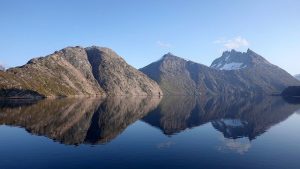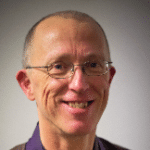What is true, what is real?
 Two words about which we often are confused, thereby causing suffering for ourselves and others, are ‘real’ and ‘true’. We often don’t notice it that we take them to be synonymous; what is real is true. But is this conclusion a correct one?
Two words about which we often are confused, thereby causing suffering for ourselves and others, are ‘real’ and ‘true’. We often don’t notice it that we take them to be synonymous; what is real is true. But is this conclusion a correct one?
What is real? It is the experience I now have as thoughts, emotions and bodily and sensory sensations. And although, for example, my current thought with corresponding emotion has to do with what has happened in the past, of will occur in the future, what is real is the fact that I experience a thought and emotion. That thought will intertwine with other thoughts and emotions to create a story in which an image is embedded. That image can be a self image, saying something about myself, how I see myself or my past or future, my life, my work etc. Or it can say something about another person or persons, or about a situation or the world in general. Our self-image or world view always carries some judgement. And we all too often presume that this image or view is correct, that it is true simply because it has my thoughts, emotions and/or bodily or sensory sensations as its basis. But are we correct to assume this?
How often have we experienced that the way we think about ourselves or others is depending on for example having had a good night sleep or not, on being in a happy mood or on feeling somewhat depressed because of the gloomy wet wetter. Or on having had a wonderful meal or being tired and hungry. Or on being in love or in a difficult relationship. How easy can our moods be affected by the endless different circumstances in which we live and how easily can the image we have of ourselves, of others or of the world, change accordingly. And every time we think that the image, our view, is true. But something that is true cannot later on, when circumstances have changed, become another truth. That which is true is unchangingly and always true.
There is a lot of confusion about truth. Sometimes you hear people say that everybody has their own truth, as if truth is something relative. But nobody truly believes this. Most people, if not all, regard their own truth always just a bit more true then somebody else’s. And where more than one truth ‘reigns’, chances for conflict will be present. At the source of almost every conflict lies the believe that our truth is the only real truth. Most of the violence in this world, whether it is political, social or religious, comes forth from the adherence to the belief in one’s own truth. And of course we also see this over and over again within our own lives. We sometimes even start battling with ourselves because we take the self image we carry with us to be true, no matter that it doesn’t correspond with the reality of what we are.
What we experience is real, as experience, but let us not conclude that the image or view arising out of that experience, is necessarily true. It is also not necessarily untrue. The image is simply an image, a view is nothing more than a view, arising from real experiences. The image of view is itself, as an experience, real but nothing more than that.
Is there anything in this world that is true, not as relative something, but as an unchanging and timeless truth? Buddhism answers this question positively. That truth is not depended on any image or view. It is also not dependent on what is real, but nevertheless therewith accessible. The truth gets unlocked when we fully allow our experiences to be what they are without grasping any of the images or views that arise from them. And truly, it doesn’t matter which experiences we have, whether they are nice or not, pleasant or unpleasant. Each judgment is in itself again a view: not true and not not true. So why clinging to it?
In this letting be what is real – and every experience is only real in this moment, here and now, – we touch a deeper truth that always is, was and will be present. It is a truth completely devoid of any image or view. We can name it with words like Timeless Being, True Self, Buddha Nature or God, but before we know it, these words will again spark off images that we will consider to be true and therefore cling to them, thus losing the truth instantly. The truth too can only be touched at one time and place: here and now.
One could describe meditation as being fully with the current experience and letting go of every image or view that arises out of that experience. I sometimes like to compare it, if I may use an image here to indicate the imageless, to looking into a very large and deep pond. The first thing we often see is our own reflection and that of all the surrounding objects. However, when we stop with focusing on the reflection and look through it with a more relaxed gaze, we see what is real: the water, the fish that swim in it, and perhaps even the subtle movement of the water itself. But we can soften our focus even more and looker still deeper in the pond. Slowly we shall ‘see’ more and more depth, spaciousness and silence.
When we look deeply with an ever softening gaze into this moment of our being, past all images and past all thoughts, emotions and sensory impressions, we gradually will discover a comparable depth, spaciousness and silence in it in which all experience manifest, without ever losing its own inherent peace and quietude. It is this imageless truth that is the bedrock of each of us.
*****
"When we look deeply with an ever softening gaze into this moment of our being, past all images and past all thoughts, emotions and sensory impressions, we gradually will discover a comparable depth, spaciousness and silence in it in which all experience manifest, without ever losing its own inherent peace and quietude."

